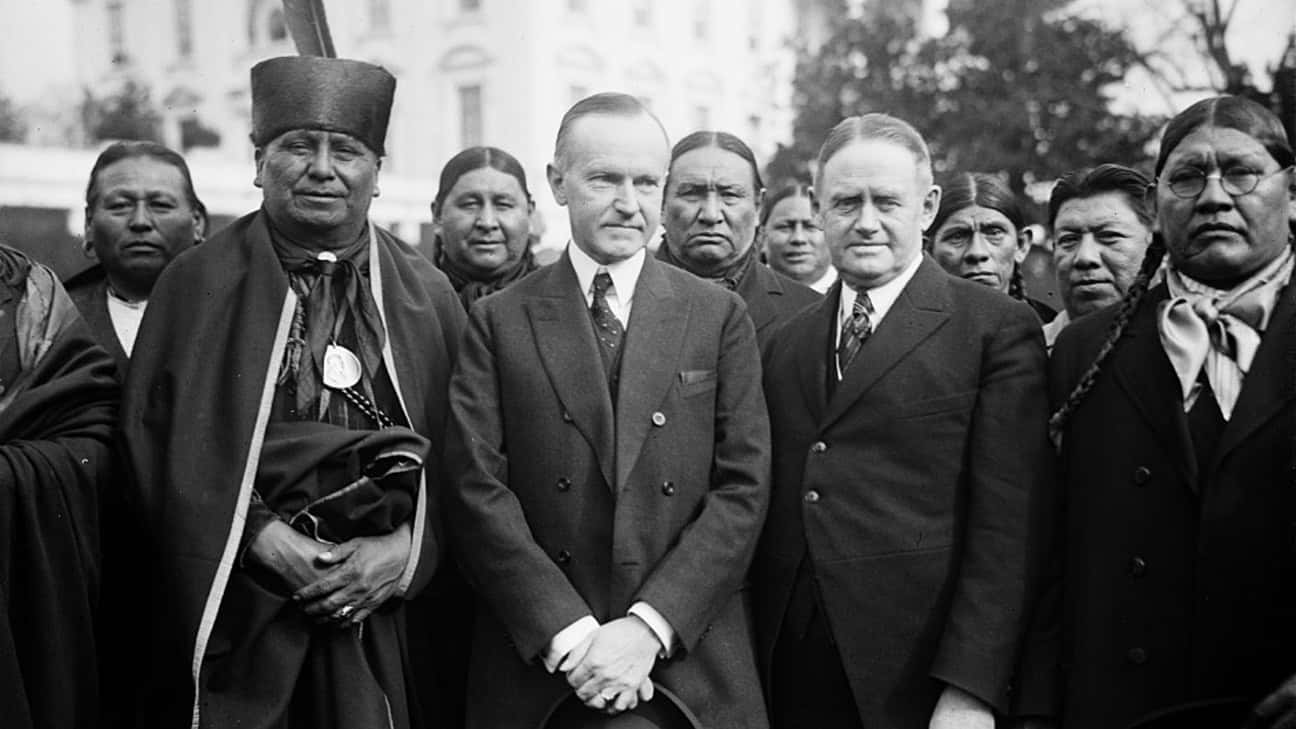
- Details
- By Levi Rickert
On June 2, 1924, the United States passed the Indian Citizenship Act (ICA). This historic milestone granted dual citizenship to members of federally recognized tribal nations and paved the way for additional protections for Native Americans across the country.
While the significance of the ICA is profound, some tribes including the Choctaw Nation of Oklahoma had already gained citizenship before the act’s passage due to previous treaties.
Iti Fabvssa, a monthly column in Choctaw Nation’s Biskinik newspaper, emphasizes that “while we share a lot of history and experiences with other American Indians (and the Five Tribes especially), Choctaws have a distinct history and relationship with the U.S. government.” The article explains, “Choctaws who took allotments were also granted U.S. citizenship in 1901 – before Oklahoma statehood and long before the 1924 Indian Citizenship Act, which gave the majority of American Indians citizenship.”
Despite the historical difference, CNO acknowledges the Indian Citizenship Act of 1924 was a crucial step forward. “The Indian Citizenship Act of 1924 provided important clarifications about the rights of members of federally recognized tribes, a critical part of defining sovereignty,” said Choctaw Nation Chief Gary Batton.
However, it would take many years until all rights, such as the right to vote, were bestowed upon the tribes. “After the Act, some states still didn’t allow Indians to vote until further legislation was passed in 1965. This history holds a lesson for today: we must constantly and vigilantly defend our rights as individuals and as sovereign nations. Part of my job as Chief of the Choctaw Nation is to protect those rights, and the members of our tribe play a critical role by engaging in their communities and voting in elections,” said Chief Batton.

More Stories Like This
Native News Weekly (August 25, 2024): D.C. BriefsUS Presidents in Their Own Words Concerning American Indians
Senate Passes Funding Deal, Partial Government Shutdown Likely as House Delays Vote
Mistrial Declared After Hung Jury in Nick Tilsen Case
Native Organizers Respond to Vote on Department of Homeland Security Funding
Help us defend tribal sovereignty.
At Native News Online, our mission is rooted in telling the stories that strengthen sovereignty and uplift Indigenous voices — not just at year’s end, but every single day.
Because of your generosity last year, we were able to keep our reporters on the ground in tribal communities, at national gatherings and in the halls of Congress — covering the issues that matter most to Indian Country: sovereignty, culture, education, health and economic opportunity.
That support sustained us through a tough year in 2025. Now, as we look to the year ahead, we need your help right now to ensure warrior journalism remains strong — reporting that defends tribal sovereignty, amplifies Native truth, and holds power accountable.
 The stakes couldn't be higher. Your support keeps Native voices heard, Native stories told and Native sovereignty defended.
The stakes couldn't be higher. Your support keeps Native voices heard, Native stories told and Native sovereignty defended.
Stand with Warrior Journalism today.
Levi Rickert (Potawatomi), Editor & Publisher


